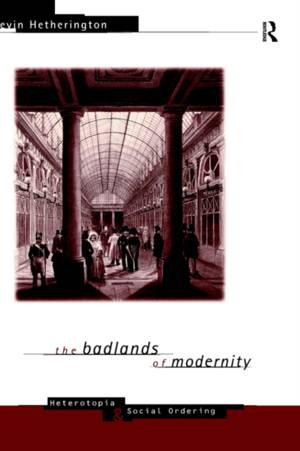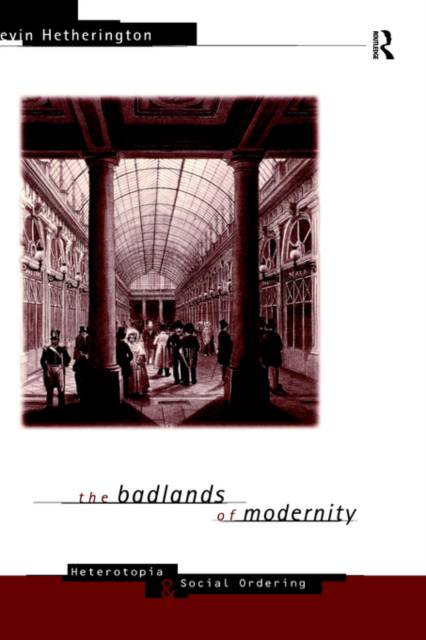
- Afhalen na 1 uur in een winkel met voorraad
- Gratis thuislevering in België vanaf € 30
- Ruim aanbod met 7 miljoen producten
- Afhalen na 1 uur in een winkel met voorraad
- Gratis thuislevering in België vanaf € 30
- Ruim aanbod met 7 miljoen producten
Omschrijving
The Badlands of Modernity offers a wide ranging and original interpretation of modernity as it emerged during the eighteenth century through an analysis of some of the most important social spaces. Drawing on Foucault's analysis of heterotopia, or spaces of alternate ordering, the book argues that modernity originates through an interplay between ideas of utopia and heterotopia and heterotopic spatial practice.
The Palais Royal during the French Revolution, the masonic lodge and in its relationship to civil society and the public sphere and the early factories of the Industrial Revolution are all seen as heterotopia in which modern social ordering is developed. Rather than seeing modernity as being defined by a social order, the book argues that we need to take account of the processes and the ambiguous spaces in which they emerge, if we are to understand the character of modern societies.
The book uses these historical examples to analyse contemporary questions about modernity and postmodernity, the character of social order and the significance of marginal space in relation to issues of order, transgression and resistance. It will be important reading for sociologists, geographers and social historians as well as anyone who has an interest in modern societies.
Specificaties
Betrokkenen
- Auteur(s):
- Uitgeverij:
Inhoud
- Aantal bladzijden:
- 176
- Taal:
- Engels
- Reeks:
Eigenschappen
- Productcode (EAN):
- 9780415114691
- Verschijningsdatum:
- 21/08/1997
- Uitvoering:
- Hardcover
- Formaat:
- Genaaid
- Afmetingen:
- 156 mm x 234 mm
- Gewicht:
- 426 g

Alleen bij Standaard Boekhandel
Beoordelingen
We publiceren alleen reviews die voldoen aan de voorwaarden voor reviews. Bekijk onze voorwaarden voor reviews.











